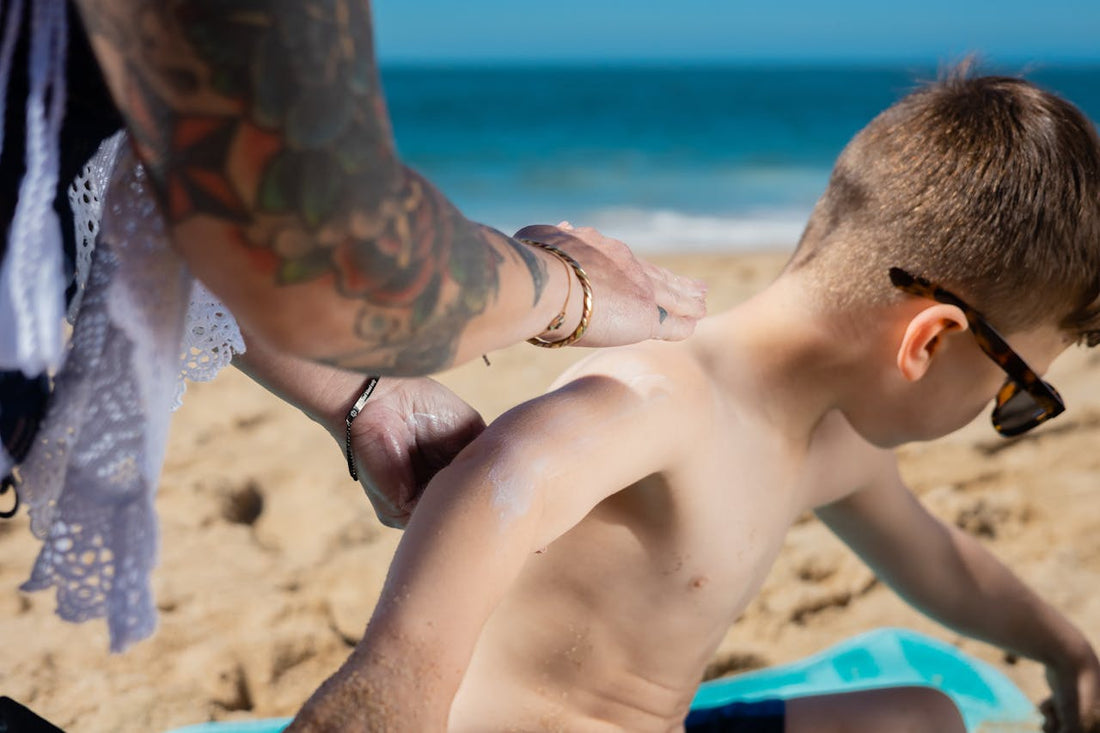
The Hidden Dangers of Kids' Lotions: Hormone-Disrupting Toxins on the Rise
Share
Recent research has shed light on a troubling issue: children who regularly use personal care products like lotions and sunscreens are being exposed to higher levels of phthalates, toxic chemicals known to disrupt hormonal systems. This study, which analyzed over 600 urine samples from children aged four to eight, reveals significant health implications that parents should be aware of.
What Are Phthalates?
Phthalates are a group of chemicals often used as plasticizers, making items more flexible and durable. They are commonly found in personal care products, including lotions, soaps, and haircare items. The concern arises from their ability to interfere with hormone production, leading to potential reproductive and metabolic issues. Children are particularly vulnerable due to their larger skin surface area relative to body weight and their still-developing metabolic systems.
Key Findings of the Study
-
Higher Levels in Children: The study found that children using these products had notably elevated levels of phthalates in their bodies. Alarmingly, Black and Latino children exhibited the highest levels of exposure.
-
Routine Use: Many personal care products are used routinely, creating a scenario where children are consistently exposed to these harmful chemicals. The study highlights that even when the body eliminates phthalates quickly, frequent applications can lead to a state of "pseudo-persistence."
-
Product Type Matters: Lotions, especially moisturizers and sunscreens, were associated with the highest levels of phthalates. Interestingly, boys were found to have higher levels than girls, and socioeconomic factors may influence exposure rates among different racial groups.
-
Phthalate-Free Does Not Mean Safe: Products labeled as "phthalate-free" may not be entirely free of these chemicals, as phthalates can migrate from plastic containers into the products themselves. The study noted no significant difference in urinary phthalate levels between those using phthalate-free and those using regular products.
The Need for Regulation
Currently, the regulation surrounding phthalates in personal care products is minimal. While some governments bodies allow certain phthalates in cosmetics, there are no strict limits on their concentration. In contrast, the European Union has implemented regulations to limit phthalate exposure in personal care items, demonstrating that safer products can be produced.
Moving Forward
As parents, it's crucial to be informed about the products we use on our children. This study should prompt discussions among policymakers and manufacturers to address the disparities in exposure to these endocrine-disrupting chemicals. By advocating for stricter regulations and choosing safer products, we can work towards protecting our children’s health.
Conclusion
The findings of this study are a wake-up call for parents and society at large. By being proactive and informed about the potential dangers of personal care products, we can help ensure a healthier future for our children.
Read More Here https://www.theguardian.com/environment/2024/sep/14/kids-sunscreen-lotions-phthalates-study

